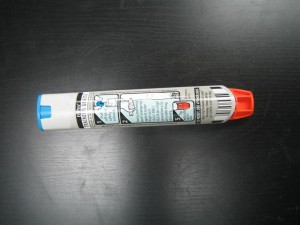Even though different countries have different regulations when it comes to administering medications without prescription, there are a few similarities which can help paramedics and rescuers determine its legitimacy during certain situations. This ensures that they can administer medications before CPR HCP without worrying about certain legalities which may put them in hot water. Here are some of the similarities that rescuers and other healthcare providers should consider.
Nurses can prescribe medications

In the absence of a doctor, rescuers can turn to licensed nurses and midwives for proper prescription especially in occasions wherein prescription medications should be administered to a patient immediately. According to the law that was proposed by Health Canada and was applauded by Canadian Nurses Association which was mandated back in 2012, nurse practitioners can prescribe medications as long as the laws of their province or territory allows them to do so. With this law, nurses can prescribe antibiotics and medications which contain controlled substances with a few limitations in order to avoid drug dependency or abuse.
Other allied healthcare professionals can also prescribe
Aside from nurses, midwives and podiatrists can now prescribe medications through this new law. Through this law, midwives can prescribe pain medications which may contain controlled substances to their patients. This can greatly affect women who are in labor and are giving birth without the presence of a doctor. Considering that this is common in more impoverished areas, extending the prescribing scope of midwives is highly beneficial for many parents. Other healthcare professionals such as podiatrists are also allowed to prescribe more medications to patients as long as it is within their scope of practice and that the medications are necessary. This is highly beneficial for patients who have gone through surgery and are suffering from post-operative pain in their lower extremities.
During emergency situations, paramedics may give prescription medications
Rescuers and paramedics are allowed to administer medications without doctor’s orders or directives as long as the situation meets certain criteria. For starters, the administration of the medication should be highly justifiable. This means that administering the medications is highly necessary and will highly improve the quality of treatment. Another criterion is that there are no other alternatives such as other over-the-counter medications. However, first aid rescuers should remember that the medications should only be taken during the emergency situations. This means that they cannot prescribe medications and instruct their patients to take or drink them at a later time in order to prevent future complications.
